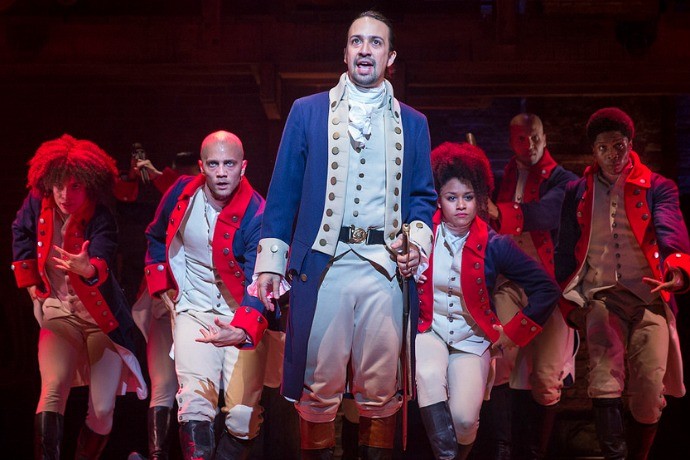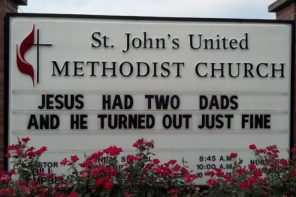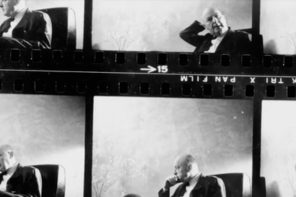Last month, the Broadway cast of Hamilton dazzled with a live Grammy performance, and last week they made it to the White House. Hamilton is a game changer, but not just for theater—I believe that the show has something to teach the church.
Let me start by saying, I’m a musical theater baby. I did not always connect with the things I was “supposed to” as a black girl, but I always found a home in the world of musicals. And Hamilton has gripped me in transformative ways.
I was first introduced to Lin-Manuel Miranda—writer and star of Hamilton—through In the Heights, Miranda’s musical about a Latinx community living in Washington Heights. I cannot underscore the excitement I felt hearing the experiences of a community that lived unapologetically outside of white America—complete with Latin rhythms, raps and the best of Broadway musical stylings.
Fast forward to 2009, when I watched a YouTube clip of Miranda performing pieces of a concept album then called “The Hamilton Mixtape.” I thought to myself, “He’s done it again.”
In the spring of 2015, I completed my master’s thesis on theology and the arts. Coming from a Pentecostal tradition, I often wrote on how the sacred exists outside the walls of the church. I was determined to integrate my love of musicals with my theological work. When I discovered the Hamilton cast was almost entirely made up of people of color, I knew I’d found my show.
Hamilton defies definition by living between worlds. For me as a Christian, this sounds like a familiar narrative—it sounds like Jesus, it sounds like the work of the Spirit.
That year was life-changing for me. After the unexpected loss of my father that winter, I postponed my graduation. I became involved in racial justice activism on Duke’s campus and around Durham. I watched the ways people on the street embodied the work of Jesus while the church remained silent. At the time, Hamilton was in previews at The Public Theater, already generating buzz.
As I wrote my thesis, I was struck by how well Hamilton articulated a gospel the church refused to preach.
As a member of a predominantly white denomination and a graduate of a predominantly white seminary, I know firsthand how the voices of the oppressed are silenced. I’ve heard countless times how the United States is a Christian nation built on Christian principles. But only a few of my professors have been willing to talk about the incongruity of that with America’s foundation of indigenous genocide and slavocracy.
To this day—like that of Abel—the blood of black and brown people cries out from the ground while many white Christians continue to ask, “Am I my brother’s keeper?” The message of Christianity, as delivered, has not always been good news for people of color. The legacies of colonization and slavery delivered a gospel that keeps us subject to the slave master and oppressed by the colonizer.
But as my theological background teaches: the Spirit has revealed to people of color that Jesus came to let the oppressed go free. As I’d put it, theologically, God is up to something with Hamilton. There is something about the story of this country’s birth being told by black, brown and female bodies that is deeply subversive.
Hamilton defies definition by living between genres, and between worlds. For me as a Christian, this sounds like a familiar narrative—it sounds like the work of the Spirit.
When the system fails to hold people accountable for the deaths of unarmed black and brown people, Hamilton presents a group of revolutionaries akin to the black, brown, queer people in the streets who are fighting today for the same freedoms we sought hundreds of years ago.
As someone who has engaged critically with church, from within and without, I believe that Christian communities would do well to pay attention to Hamilton.
Amid rap battles, ballads and throwbacks to the hip-hop greats of Biggie, Tupac and Big Pun, Hamilton dares to remind us of the hypocrisy of the claim that all are equal in this nation. We cannot ignore the implications of a black George Washington and Thomas Jefferson. Or that the Schuyler sisters—front and center—remind us of women’s instrumental role in the formation of this country. Or that, as the track “Yorktown” declares, it’s immigrants who get the job done.
At a time when the revolution is still not televised (unless it is to demonize victims and vilify the outcry of communities of color) the revolutionaries of Hamilton play on a loop in my head. The revolutionaries are with me in my car and on my runs, and as a black woman fighting against injustice, they remind me how lucky I am to be alive right now.
It’s the soundtrack of my life.
Consider what it means for a group of students to sit in the White House and—in the presence of the first black president and first lady—hear from people of color who tell the origin story of this nation eight times a week.
Envision what it means for people of color to see the founding fathers and mothers represented in a way that celebrates the true diversity of this country. When the system fails to hold people accountable for the deaths of unarmed black and brown people, Hamilton presents a group of revolutionaries akin to the black, brown, queer people in the streets who are fighting today for the same freedoms we sought hundreds of years ago.
Amid the flames of torched black churches, the cries of mothers and fathers burying slain children and the silence of too many white churches, Hamilton reminds us that black and brown lives matter. It reminds me that when the church refuses to speak, the Spirit will bear witness to the truth of God in the most unlikely places—because that is the Spirit’s way.




